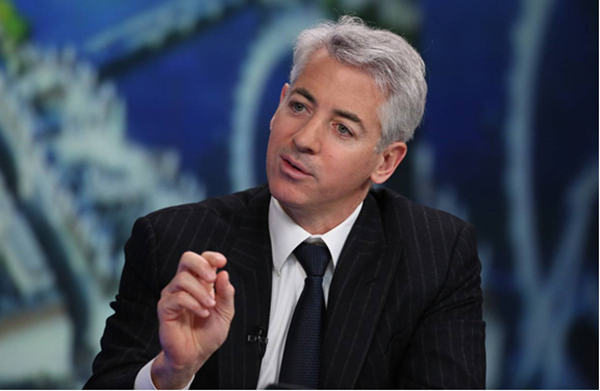|
THE
WALL STREET JOURNAL.
Business |
Management |
Management & Careers
The Two Words That Earn CEOs a Pay Raise
Study finds that executives who name shareholder value as key
priority receive larger pay increases
|

Rise of activist shareholders such as William Ackman of Pershing
Square Capital Management have resulted in a push for changes to
lift returns at companies.
PHOTO: CHRIS RATCLIFFE/BLOOMBERG NEWS |
By
JOHN SIMONS
Updated Nov. 8, 2016 11:33
a.m. ET
For
chief executives, two words can lead to a pay raise: shareholder
value.
A newly
published study of shareholder letters and executive compensation
finds that CEOs who name shareholder value as their primary objective
in investor letters received larger increases in their annual pay
packages than chiefs who cited other priorities, such as improving
customer loyalty or increasing market share.
The
study, recently published in the Journal of Management Studies,
examined 2,373 letters to shareholders from 590 CEOs of S&P 500
companies between 1998 and 2005. Authors Taekjin Shin of San Diego
State University and Jihae You of Louisiana State University
determined that corporate leaders who explicitly communicated their
interest in maximizing shareholder value received higher annual
compensation increases. The pay packages included salaries, bonuses,
the value of stock-option grants, restricted stock grants and
long-term incentive plans.
After
controlling for company size, stock performance, the chief executive’s
tenure and other factors, CEOs could count on an additional $116,000
for every mention per 1,000 words of boosting the company’s share
value.
The
explanation isn’t simply that CEOs are ingratiating themselves to
corporate boards and compensation committees, Mr. Shin said. Instead,
the leaders are using language that signals the appearance of
competence and control.
“Top
corporate managers’ use of language that is congruent with a
prevailing norm leads the boards of directors to evaluate the managers
more favorably and to grant a higher level of compensation,” he and
Mr. You note in their paper,
”Pay for Talk: How the Use of
Shareholder-Value Language Affects CEO Compensation.”
Connoisseurs of CEO communications might assume that “shareholder
value” is part of nearly every chief executive’s letter-writing
lexicon. But Mr. Shin says fewer than half of the shareholder letters
in the study ever mentioned the principle.
Times
have changed in the past decade with the rise of activist shareholders
such as
William Ackman of Pershing Square
Capital Management LP, who likes to take large positions in companies
and then push for changes to lift returns. Indeed, in 2005, there were
just 616 mentions of “shareholder value” on corporate earnings calls
with analysts and investors; by 2015, that number rose to 3,756
mentions of those buzzwords, according to data from Factiva.
Write to
John Simons at
John.Simons@wsj.com
|